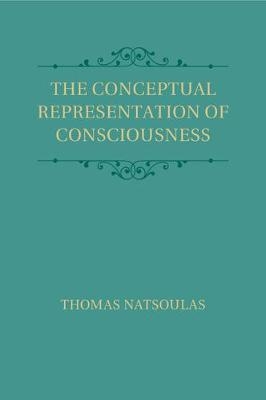
The Conceptual Representation of Consciousness
Seiten
2017
Cambridge University Press (Verlag)
978-1-108-43102-6 (ISBN)
Cambridge University Press (Verlag)
978-1-108-43102-6 (ISBN)
A valuable contribution to psychology of consciousness. Each of its six main chapters adopts the perspective of a different concept of consciousness employed in ordinary thought and speech. The author examines the sources of each concept and relates them to relatively recent or contemporary conceptual counterparts still perforce under development.
Consciousness is familiar to us first hand, yet difficult to understand. This book concerns six basic concepts of consciousness exercised in ordinary English. The first is the interpersonal meaning and requires at least two people involved in relation to one another. The second is a personal meaning, having to do with one's own perspective on the kind of person one is and the life one is leading. The third meaning has reference simply to one being occurrently aware of something or as though of something. The fourth narrows the preceding sense to one having direct occurrent awareness of happenings in one's own experiential stream. The fifth is the unitive meaning of consciousness and has reference to those portions of one's stream that one self-appropriates to make up one's conscious being. The last is the general-state meaning and picks out the general operating mode in which we most often function.
Consciousness is familiar to us first hand, yet difficult to understand. This book concerns six basic concepts of consciousness exercised in ordinary English. The first is the interpersonal meaning and requires at least two people involved in relation to one another. The second is a personal meaning, having to do with one's own perspective on the kind of person one is and the life one is leading. The third meaning has reference simply to one being occurrently aware of something or as though of something. The fourth narrows the preceding sense to one having direct occurrent awareness of happenings in one's own experiential stream. The fifth is the unitive meaning of consciousness and has reference to those portions of one's stream that one self-appropriates to make up one's conscious being. The last is the general-state meaning and picks out the general operating mode in which we most often function.
Thomas Natsoulas is Emeritus Professor of Psychology at the University of California, Davis, and a fellow of the Association for Psychological Science and the American Psychological Association. He is the author of Consciousness and Perceptual Experience (Cambridge, 2013).
Introduction; 1. The concept of consciousness: the interpersonal meaning; 2. The concept of consciousness: the personal meaning; 3. The concept of consciousness: the awareness meaning; 4. The concept of consciousness: the inner-awareness meaning; 5. The concept of consciousness: the unitive meaning; 6. The concept of consciousness: the general-state meaning.
| Erscheinungsdatum | 12.08.2017 |
|---|---|
| Zusatzinfo | Worked examples or Exercises |
| Verlagsort | Cambridge |
| Sprache | englisch |
| Maße | 152 x 230 mm |
| Gewicht | 690 g |
| Themenwelt | Geisteswissenschaften ► Philosophie |
| Geisteswissenschaften ► Psychologie ► Allgemeine Psychologie | |
| Geisteswissenschaften ► Psychologie ► Biopsychologie / Neurowissenschaften | |
| Geisteswissenschaften ► Psychologie ► Verhaltenstherapie | |
| ISBN-10 | 1-108-43102-X / 110843102X |
| ISBN-13 | 978-1-108-43102-6 / 9781108431026 |
| Zustand | Neuware |
| Haben Sie eine Frage zum Produkt? |
Mehr entdecken
aus dem Bereich
aus dem Bereich
wie Affekte innere Entwicklung ermöglichen
Buch | Softcover (2023)
Klett-Cotta (Verlag)
30,00 €
Buch | Softcover (2024)
Hogrefe Verlag
34,95 €


